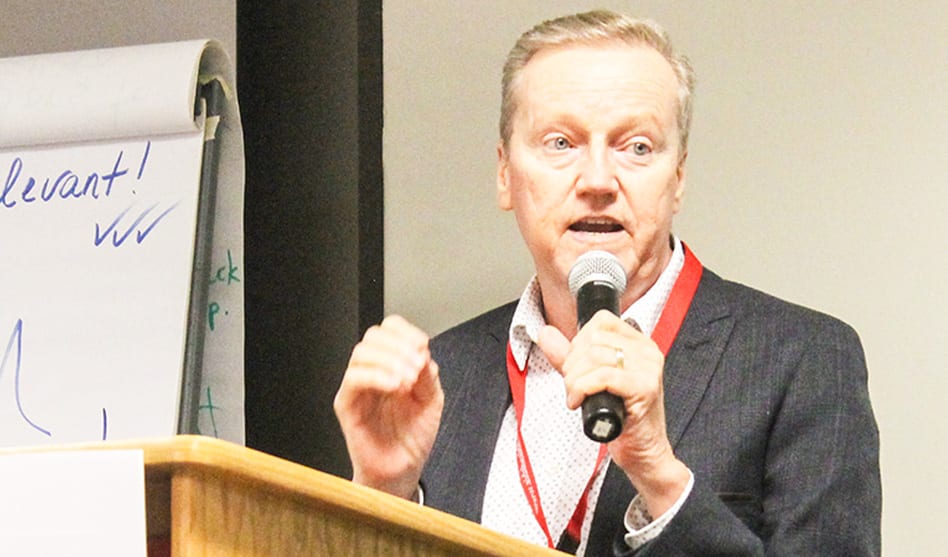Partnering with existing organizations and healthcare providers is key to organization’s strategy
DAVID TAFFET | Senior Staff Writer
taffet@dallasvoice.com
While building our own senior facilities has long been a goal of the LGBT community, that was never the main goal of the Coalition for Aging LGBT. Rather, the organization has looked for allies to work with and add programming and other solutions to some of the unique needs of the aging LGBT community.
“We’re bringing on a lot of collaborative affiliates,” coalition founder Cannon Flowers said.
But, nursing homes and assisted living facilities will be a primary topic at the coalition’s summit this weekend in Dallas.
After an LGBT aging summit in Tarrant County last year, that area’s Alzheimer’s association and John Peter Smith Hospital, the county hospital, have joined efforts to provide services to the LGBT community. That’s what the coalition wants to see.
“More and more organizations are reaching out to us wanting to collaborate,” Flowers said.
Annabel Luna, who does geriatrics education at John Peter Smith, attended the Tarrant County summit, and she said it inspired her to look for new ways to provide better service to LGBT patients.
“We know the aging community will double in size over the next few years,” she said. “But we group them all together. We’re mindful of religion and race and language and culture, but we don’t think about sexual orientation or gender status.”
She said hearing about special challenges, especially as people age, provides her with new challenges in her work. “Hearing these stories was eye-opening,” Luna said.
Policies in the healthcare system must be truly inclusive, Luna said, and she’s been looking at the way trans people and people with same-sex partners are treated.
She said she heard multiple stories from trans people about being disrespected in the emergency room — everything from use of the wrong name and gender to claims of not knowing how to care for the person. With same-sex couples, treatment has been delayed when emergency personnel acted as if they couldn’t accept information from the patient’s spouse.
“We want to avoid these situations,” Luna said, by having the right policies and training in place ahead of time.
Luna said working with the coalition has opened up partnerships that have helped create better practices that result in better health outcomes. “We’re supportive of the work they’re doing,” she said of the coalition.
Brian Price co-chairs the coalition’s housing committee with Dawnetta Miller. Recently, Price traveled to Portland, Ore., to learn how SAGE Portland has partnered with nursing homes, assisted living facilities and other senior facilities to help them become LGBT-welcoming.
At previous summits, housing was the No. 1 concern of community members as they age, and “recloseting” and bullying in senior residential facilities are the two biggest fears.
In Portland, SAGE formed relationships with a handful of facilities to help them create an environment that welcomes LGBT residents. Rather than send out a survey, Price said, “they brought a handful of industry folks into a room and had a conversation.”
Price said the Portland group found that not only were LGBT seniors uncomfortable in their living facilities, but LGBT children of parents in residential settings were uncomfortable visiting.
Among the issues discussed with senior facilities to get LGBT-welcoming certification is making sure residences have non-discrimination clauses and that gender identity is recognized. Programming must include events of interest to LGBT residents, such as transportation to Pride celebrations or having an LGBT film included on movie nights.
Marketing materials, Price said, should include a same-sex couple. And staff training is important.
While an anti-bullying policy might be in place, that won’t necessarily stop harassment by other residents, so a complaint process should be in place, too.
Price said facilities were graded, and 80 percent was the passing grade. Portland put out a Guide to LGBT-friendly Senior Housing to connect LGBT-seniors to housing that welcomed them.
Since that first handful of facilities that participated, many others have contacted the group to be included. So many, Price said, that the small group has been overwhelmed by the requests.
Price said his committee is studying what he learned in Portland and plans to launch a similar program in early 2018. He said the certification process could take anywhere from one to six months, depending on how far along a facility is in ensuring the safety and well-being of its LGBT residents.
At the Dallas summit this weekend, there will be a housing breakout session to discuss what was learned in Portland and how it will be used in Dallas.
“We will be discussing the Portland trip and a pilot initiative for DFW, as well as ways LGBT seniors can better know their rights in facilities and learn how to search for the right facility as consumers,” Price said.
……………
Coalition for Aging LGBT presents its annual summit from Saturday, Nov. 4, 8 a.m.-2 p.m. at Mountain View College,
4849 W. Illinois Ave.












Are folks who ‘run’ local nursing homes invited to participate?